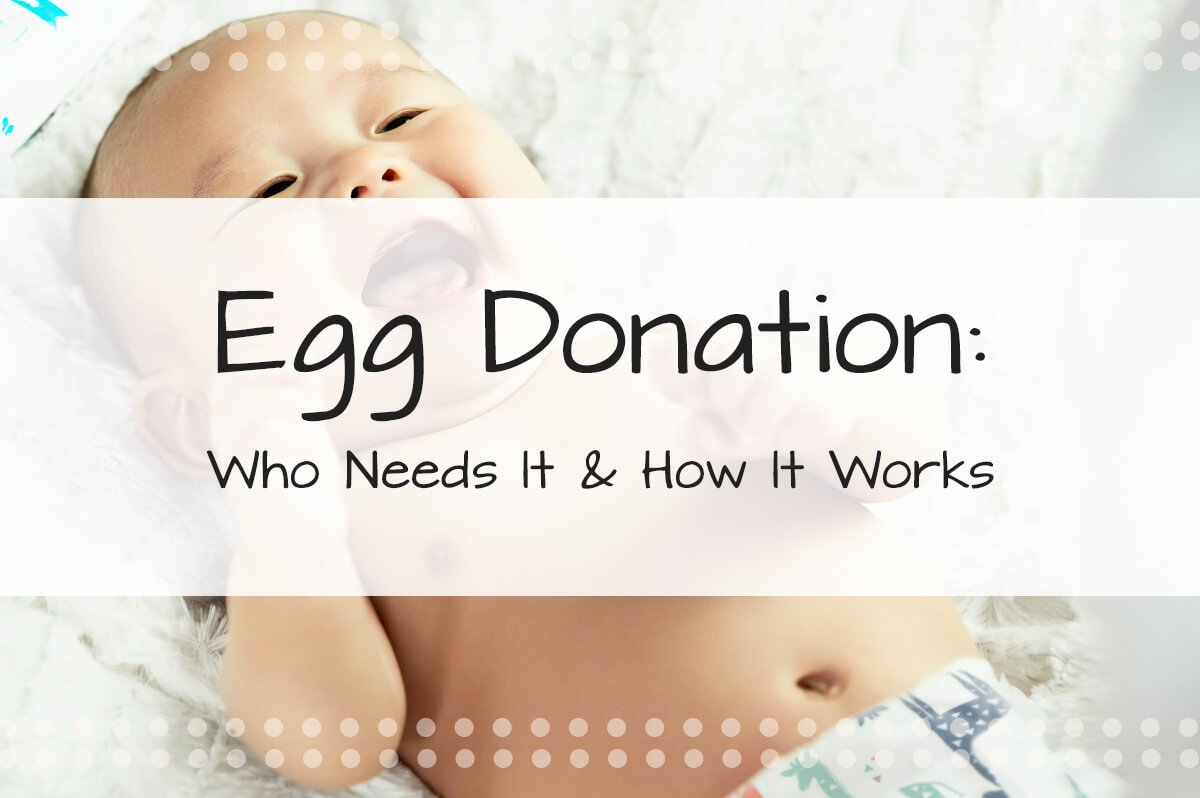
Egg Donation—Who Needs It & How It Works To Help Those Struggling with Infertility Start a Family Through Surrogacy
Hello intended parents!
Today we are speaking about egg donation. Maybe you planned on making embryos on your own and instead found out the bad news that your eggs will not suffice for making viable embryos.
Perhaps you have found this article to research egg donation because you may be older in age, you have been struggling with infertility, or you may have transferred your last embryo on another attempt at IVF.
Parents looking to find a surrogate sometimes find themselves still in the middle of a pickle when the process of forming embryos doesn’t go their way.
They may have found a surrogate and know they need one because of their experience with pregnancy and perhaps going through multiple rounds of IVF on their own, but how does egg donation work?
The process of surrogacy can sometimes involve needing to use an egg donor in order to provide the healthiest choice of an embryo.
Intended parents who struggle with severe infertility may need the use of egg donation in order to have a baby.
There are a lot of misunderstandings and questions surrounding egg donation. This article will shed light on those myths and explain how it works and who can benefit from egg donation.
Infertility
Those who benefit from an egg donor the most are those who struggle with their fertility.
Perhaps their fallopian tubes are blocked or their body isn’t healthy enough to support an embryo. Some women simply don’t have healthy eggs.
They may have been ravaged by cancer, another disease, or even just genetics. If a woman is unable to use her eggs, then she can still utilize the service of an egg donor.
Because fertility problems affect more than 6.1 million women in America, many couples are seeking an alternative way to have children.
One of the best options for women who have unhealthy eggs is surrogacy and donation of eggs. Through surrogacy in California, the intended parents can watch their child grow and develop until it’s eventually born.
Those who need egg donation are typically parents where the mother cannot produce genetic material of her own. Her eggs are unable to support life. Here’s how someone donating an egg can still give her a child of her very own.
The Process: Donors
Egg donors have a longer process than those who are receiving the egg.
They have to go through a few screenings before they can be okayed for donation. First, they have to be a certain age. Donors are typically around 24-35 years old. They should also not carry any infections like HIV or hepatitis C. This could be transferred to the egg during the process. There is also a series of drug tests, blood tests, interviews, examinations, and screening for infectious diseases that occur.
One last hurdle that donors must jump is a psychological evaluation.
This evaluation is to gauge the mental status of the donor. It can help inform the clinic if the resultant children might suffer from a mental disease or condition introduced through the donor. It’s also used to ensure that the donor is absolutely certain of her choice.
The fertility medication begins with receiving medication that will halt their menstrual cycle. The egg donor may experience some symptoms that are similar to those felt in menopause. Hot flashes, fatigue, body aches, and headaches are not uncommon side effects of the medication.
How Fertility Medication For Donors Works
Once the cycle has slowed enough, the clinic will then start them on fertility drugs.
These drugs will stimulate their ovaries and the production of eggs. Essentially, many eggs will be created at a single time. Egg donors will have to give themselves this medication either through the muscle or just under the skin through injection.
Because of the increase of eggs in their body, most clinics ask that their donors refrain from having intercourse until after their eggs have been removed. Or, at the very least, to use birth control with a barrier like a condom.
Using traditional birth control like medication can influence the number of eggs that are produced.
Throughout these medications, the donor is given many ultrasound examinations and blood tests to ensure both her health and the health of her eggs.
When it nears time for the retrieval of the eggs, the donor is given one last medicated injection.
Doctors will conduct a transvaginal ovarian aspiration in order to retrieve a good sample of eggs. An ultrasound probe is used within the vagina to help locate and remove eggs. The entire retrieval process can take up to 30 minutes.
In that time, the egg donor is able to receive painkillers or even be put under sedation.
Egg donors are expected to remain at the clinic overnight to ensure that they heal nicely. Some women are able to return to their normal activities a few days after the procedure. Others require a bit more time to recover. Egg donors are also suggested to speak with a counselor after the procedure as it can have some impact on them emotionally.
The Process: The Recipient
With her eggs removed, the intended parents come into play.
Since the egg already contains genetic material from the donor, the sperm donor is needed to transform the egg into that of an embryo. The sperm donor offers a sample of their sperm which is then placed inside of a petri dish with the donated eggs. This process is known as in-vitro fertilization.
Once the egg has been fertilized, clinics wait a few days for the embryo to grow.
Around day five or six, the embryo is then placed in the surrogate that intended parents found after searching for “surrogate near me.” Surrogacy in California is an excellent method for parents struggling with fertility. Even an egg that has been donated can be used with surrogacy.
Once the embryo is placed within the surrogate mother, it starts to grow and develop until its birth.
Is Using an Egg Donor Safe?
Before any of our intended parents select an egg donor, they should know that egg donors go through many of the same intense screening that our surrogate mothers do.
They will undergo a drug test, their medical records will be collected and reviewed, and current medical tests will be undergone in addition to what was mentioned above.
Egg Donation has become a very safe process for parents to receive genetic material from which a healthy embryo can be made. Not only is the egg donor properly medically screened, but the donation of their eggs will be made specifically for each parent that selects their individual profile.
Myths and Fears About Egg Donation
There are a few myths and fears that intended parents have about donated eggs that should be clarified:
Myth #1. The child will not look like them
Perhaps one of the biggest concerns that intended parents have is whether or not the child will look like them.
While the baby does borrow genetic material from the woman who donated the egg, the other genetic material will usually come from the intended father if his sperm is deemed healthy enough to use.
Myth #2. The surrogate will be the genetic parent
Because the process of becoming pregnant through surrogacy largely uses gestational surrogacy, the genetic material will not be used from your surrogate mother. She is only the host of the baby while it grows.
Myth #3. The child will still not “be mine”
Another idea to keep in mind is to use an egg donor that comes from your own family.
Perhaps you are unable to donate an egg, but your sister, cousin, aunt, niece, or another female family member may be able to donate an egg. In this way, part of your DNA is still present.
However, this does not guarantee either that your child will look just like you. After all, siblings can look quite different from one another, too.
Furthermore, intended mothers shouldn’t feel as though they are not the biological mother of a child if they do not contribute to genetic material. The baby is of your own making and when the surrogate mother has successfully birthed the child, your baby will be 100% legally your own child when you are finished!
Myth #4. If my egg donor is healthy between childbearing years, I should not test my embryos
This could be a devastating myth out there in the surrogacy/egg donation world. PGS/PGD testing is not only for women within a certain age range (40+). It has been proven to help parents choose healthy eggs from the start, which is the goal of any egg donation.
We encourage all parents to test their embryos for genetic abnormalities to avoid issues of cost and heartache down the road. Yes, testing the embryos is not 100% guaranteed to work with your surrogate, however, it gives you the best chance.
Surrogacy and Donation of Eggs
It is possible to find a surrogate in Sacramento or the greater area of California.
This surrogate is then able to carry an embryo that was created via an egg donor and the intended father. For intended mothers who suffer from severe infertility, you can still have a chance of having a baby through the use of a donor and a surrogate.
Being a parent isn’t about who grew a child or who provided the genetic material. It’s about who raises the child with love and prepares them for life ahead.

If you’re a woman who struggles with fertility and doesn’t think that she can have a child with her partner, you should find a surrogate and utilize an egg donor. Contact our agency today for more information!
